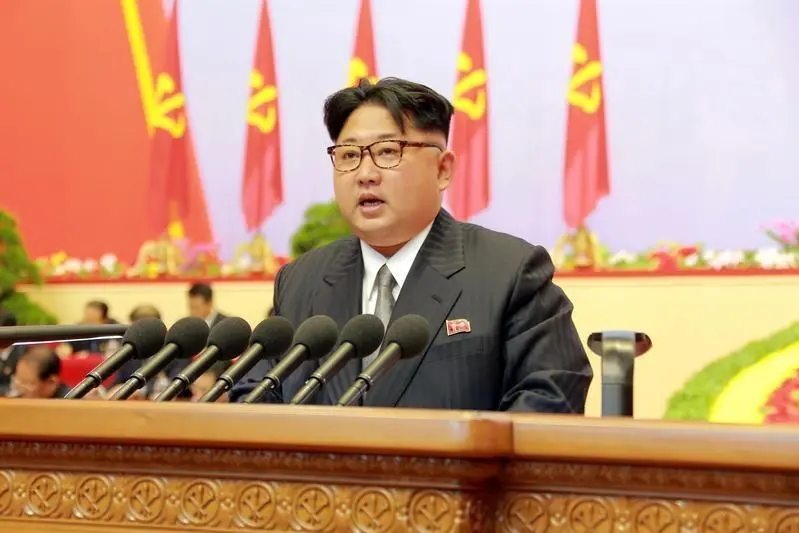PHOTO
By James Pearson
PYONGYANG, May 9 (Reuters) - North Korea expelled a BBC journalist on Monday over his reporting, the broadcaster and a North Korean official said, as a large group of foreign reporters visited the isolated country to cover a rare congress of its ruling Workers' Party.
Rupert Wingfield-Hayes was detained on Friday as he was about to leave the country, along with a BBC producer and cameraman, the network said. The three were on their way to the airport in the capital, Pyongyang, on Monday afternoon, it said.
The British reporter had "distorted facts and realities" in his coverage, North Korean official O Ryong Il said in announcing that Wingfield-Hayes, who is based in Tokyo, was being expelled and would never be let in again.
"They were speaking very ill of the system, the leadership of the country," O, who is secretary general of a National Peace Committee, told reporters in Pyongyang, according to a video clip published by the Associated Press.
Another BBC correspondent in Pyongyang, John Sudworth, said in a broadcast report there was "disagreement, a concern over the content of Rupert's reporting", including questioning the authenticity of a hospital.
In his report of a visit to the children's hospital in Pyongyang, Wingfield-Hayes said the patients looked "remarkably well" and there was not a real doctor on duty.
"Everything we see looks like a set-up" he said in the report.
Sudworth said in his report Wingfield-Hayes had been prevented from leaving on Friday and taken away for questioning.
"(He) was separated from the rest of his team, prevented from boarding that flight, taken to a hotel and interrogated by the security bureau here in Pyongyang before being made to sign a statement and then released, eventually allowed to rejoin us here in this hotel," Sudworth said.
CLOSELY WATCHED
The interrogation lasted eight hours and was conducted by a man who introduced himself to Wingfield-Hayes as the person who prosecuted Kenneth Bae, an American missionary who had been held by the North for two years for crimes against the state, said another BBC correspondent in Pyongyang, Stephen Evans.
Bae was released in November 2014.
North Korea granted visas to an unusually large group of 128 journalists from 12 countries to coincide with the congress.
Their movements are closely managed and as of mid-day on Monday they had yet to get access to the proceedings of the party congress, which began on Friday.
Instead, they had been shown model sites including a maternity hospital, an electric cable plant and a children's' centre.
On Monday, visiting media were taken to a textile factory named after Kim Jong Suk, the grandmother of the country's young leader.
The North Korean government, which owns and operates all domestic news media organisations, maintains tight control over foreign reporters, with government "minders" accompanying visiting journalists as they report.
Wingfield-Hayes had been in town ahead of the congress to cover the visit of a group of Nobel laureates.
North Korea said it would strengthen self-defensive nuclear weapons capability in a decision adopted at the congress, its KCNA news agency reported on Monday, in defiance of U.N. resolutions.
(Additional reporting by Ju-min Park and Jack Kim in Seoul; Editing by Tony Munroe and Robert Birsel) ((ju-min.park@thomsonreuters.com; +82 2 3704 5650; Reuters Messaging: ju-min.park.thomsonreuters.com@reuters.net))





















